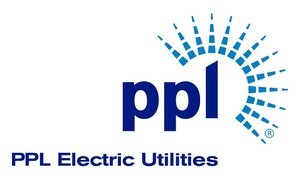
Legislation allowing new utility rate structures becomes law
House Bill 1782 supports strong, flexible, resilient power delivery networks
ALLENTOWN, Pa., June 28, 2018 /PRNewswire/ -- State legislation that supports the development of strong, flexible and resilient power grids by allowing utilities to propose new rate-making approaches has been signed into law by Pennsylvania Gov. Tom Wolf.
Wolf signed House Bill 1782 into law Thursday (6/28), six days after the bill earned approval from the full Pennsylvania Senate.
PPL Electric Utilities supported HB 1782 throughout the legislative process. The utility's president, Greg Dudkin, testified in favor of the bill last November at a hearing of the Pennsylvania House Consumer Affairs Committee.
"The option for utilities to propose new rate-making structures will benefit customers, the Commonwealth of Pennsylvania and utilities," Dudkin said. "As the electric grid evolves to meet new needs, demands, and challenges, the new rate-making options enabled by HB 1782 will help keep it strong for all users."
HB 1782 received strong support from the Pennsylvania legislature, earning unanimous, bipartisan approval from consumer affairs committees in the House and Senate. The bill was approved in the full House by a vote of 191-1, and in the full Senate by a vote of 41-8.
"We thank legislators for recognizing the importance of HB 1782, and the bill's many potential benefits," Dudkin said. "In particular, we appreciate the work of the bill's sponsor, Rep. Sheryl Delozier; House Consumer Affairs Committee Chair Robert Godshall and Democratic Chair Tom Caltagirone; and Sens. Pat Browne, Lisa Boscola and Robert Tomlinson, who led the bill's passage in the Senate."
Distribution networks are adapting and evolving. As greater numbers of customers install solar panels and other types of distributed generation systems, utilities need to invest in new technology to accommodate two-way flow of energy and keep electric service strong, reliable, and affordable for all users. Utilities also are investing to guard their systems against cyber or physical attack, a major concern throughout the industry.
To keep distribution networks strong, reliable, and prepared for new demands, new rate-making approaches are needed.
One approach: Decoupling
One possible alternative rate-making structure is called decoupling. Decoupling separates, or "decouples," utility revenues from electricity sales. It breaks the traditional link between how much power a utility sells and how much revenue it earns. Various forms of electric decoupling are already working in 18 states.
Under decoupling with a multi-year rate plan, the model advocated by PPL Electric Utilities, utility revenues would be approved in advance by the Pennsylvania Public Utility Commission. A utility would be able to collect only the defined amount of revenue over a multi-year period – no more and no less. There would be periodic rate "true-ups" for customers, adjusting their price per kilowatt-hour up or down to account for any over- or under-collection of the utility's authorized revenues.
The average customer would notice very little difference between the current rate structure and decoupling. Customers may still pay per kilowatt-hour for electricity and have an incentive to use less energy. This includes the generation portion of their bills, which would not be affected by decoupling. Those who use less electricity will have comparatively smaller bills.
Rates still receive PUC review
Utilities would not be required to use alternative rate-making models, and any proposal to change from the current rate-making structure to a decoupled structure will need to be approved by the PUC through a base rate case proceeding. The PUC will still approve in advance, through a public process, what can be charged for electricity delivery.
The law also enables performance-based rates, which would help hold utilities accountable for reliability and other key performance measures on behalf of customers.
"We are committed to continuing to deliver reliable, safe and affordable service to customers throughout our 29-county service area," Dudkin said. "This forward-looking law supports the work all Pennsylvania's electric utilities are doing to adapt and strengthen their delivery networks for the 21st century."
PPL Electric Utilities provides electric delivery service to more than 1.4 million homes and businesses in Pennsylvania and ranks among the best utility companies in the country for customer service and reliability. PPL Electric Utilities is a major employer in the communities it serves. It is a subsidiary of PPL Corporation (NYSE: PPL). For more information, visit www.pplelectric.com.
Visit our media website at www.pplnewsroom.com for additional news and background about PPL Corporation.
Contact: Kurt Blumenau, 610-774-5997
PPL Electric Utilities
SOURCE PPL Electric Utilities







Share this article